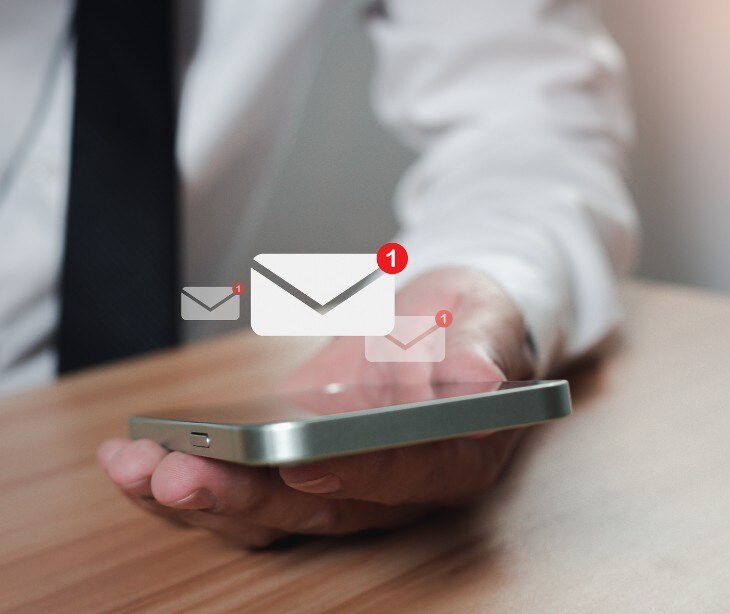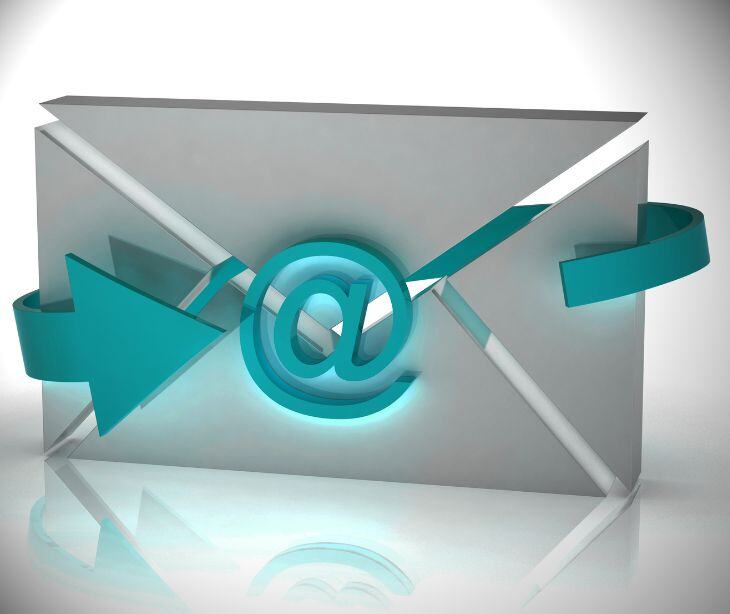
Healthcare providers must adhere to HIPAA standards to ensure the security of protected health information (PHI). One of the most common ways that PHI is shared is through email. However, email is also one of the most vulnerable channels for data breaches. To remain HIPAA compliant, healthcare organizations must follow specific guidelines to ensure their email communication is secure.
Understanding HIPAA compliance
HIPAA, which stands for the Health Insurance Portability and Accountability Act, was established by the U.S. Department of Health & Human Services to protect patients' healthcare information from public access. The act sets a standard to safeguard the privacy of personal health information and ensures the confidentiality, integrity, and availability of electronic protected health information(ePHI).
The nature of the information involved in healthcare, such as medical history, financial details, and Social Security numbers, makes the security of PHI necessary. HIPAA compliance works to prevent this sensitive information from falling into malicious hands.
According to a recent study conducted by IBM, healthcare data breaches cost an average of $7.13 million per incident, making implementing HIPAA compliant email practices a great investment for healthcare organizations.
Read more: How HIPAA defines confidentiality, integrity, and availability of ePHI
HIPAA compliant email: What you need to know
HIPAA compliant email ensures that any email containing PHI is delivered securely to the intended recipient's inbox. While regular consumer and business email providers like Microsoft or Gmail are not inherently HIPAA compliant, there are specific configurations and third-party providers that can ensure compliance.
Steps to make your personal email account HIPAA compliant
- Use a secure email provider: Choose a HIPAA compliant email service, like Paubox, that offers security measures, such as encryption and secure transmission protocols, and will sign a business associate agreement.
- Implement strong passwords: Create unique, complex passwords for your email account.
- Be cautious with attachments: When sending PHI via email, ensure any attachments are encrypted. Services like Paubox do this automatically, or you must use secure file-sharing services instead of attaching files directly.
- Limit access and sharing: Only share PHI with authorized individuals involved in patient care or related activities.
- HIPAA compliance training: Familiarize yourself with HIPAA regulations regarding PHI protection, including proper handling, storage, and disposal of sensitive data.
- Regularly update software: Keep your operating system, antivirus software, and other applications up to date to protect against potential vulnerabilities that could compromise the security of your personal email account.
Go deeper:
Finding the best HIPAA compliant email provider
When searching for a HIPAA compliant email provider, there are several factors to consider:
- Business associate agreement: The provider must be willing to sign a business associate agreement, which establishes the responsibilities and obligations regarding PHI.
- Customer service: An attentive customer service team to address any questions or concerns regarding HIPAA compliance.
- Email encryption: The provider should encrypt every email, including non-PHI emails, without additional buttons or portals. Encryption ensures that the content remains secure during transmission.
- Compatibility and integration: The encryption service should seamlessly integrate with any device, browser, and email provider, ensuring ease of use for both senders and recipients.
How to evaluate a HIPAA compliant email solution
Before signing up with an encrypted email solution, review the below points.
- HIPAA compliance: Is the company HIPAA compliant? Does it focus on healthcare specifically?
- Usability/integration: How easy is integrating the service into existing platforms? Is it easy for providers and administrators to use?
- Customer service: What avenues do customers have when they need help?
- Encryption system: Does the service encrypt emails or use portals? Does encryption need to be done manually, or is it automatic?
- Reviews: What are the reviews of the service? How is it rated?
- Breaches: Has the company ever experienced a data breach?
- Pricing structure: How does the company price its service? What is included in the various tiers?
Benefits of HIPAA compliant email
Implementing HIPAA compliant email practices offers several benefits for healthcare organizations:
Enhanced security
HIPAA compliant email encryption provides an additional layer of security for patient information. Encryption scrambles the content of the email, making it unreadable to unauthorized individuals. This reduces the risk of data breaches and protects patients' sensitive information.
Legal compliance
Complying with HIPAA regulations is a legal requirement for healthcare organizations. Using a HIPAA compliant email provider ensures that your organization meets the necessary standards and avoids potential penalties or legal consequences associated with non-compliance.
Improved trust and reputation
Adhering to HIPAA compliance standards demonstrates your commitment to protecting patient privacy and security. This commitment helps build trust with patients, establishing your organization as one that takes their privacy seriously. A strong reputation for data security can be a significant differentiator in the healthcare industry.
Streamlined workflow
HIPAA compliant email providers often offer additional features to streamline workflow processes. These features may include secure file sharing, electronic signatures, and secure messaging, all of which contribute to improved efficiency and collaboration among healthcare professionals.
Implementing HIPAA compliant email practices
Once you have chosen a HIPAA compliant email provider, there are additional steps you can take to ensure HIPAA compliance in your email communication:
Train employees on HIPAA regulations
Educate your employees about HIPAA regulations, including the importance of secure email communication and the potential consequences of non-compliance. Training should cover best practices for handling PHI, recognizing phishing attempts, and understanding the appropriate use of encryption.
Use strong passwords and two-factor authentication
Ensure that all email accounts have strong, unique passwords and encourage employees to use two-factor authentication. This adds an extra layer of security by requiring a second verification step, such as a code sent to a mobile device, in addition to the password.
Regularly update software and security patches
Keep email software and security patches up to date to protect against known vulnerabilities. Regular updates help ensure that your email system remains secure and safeguards against potential threats.
Monitor and audit email communication
Implement monitoring and auditing processes to track email communication and identify any potential security breaches or policy violations. Regular audits can help detect and address any issues promptly, ensuring ongoing compliance.
FAQs
Can employees use personal email accounts for work-related communication?
It is not recommended for employees to use personal email accounts for work-related communication involving PHI. Personal email accounts may lack the required security measures and encryption required for HIPAA compliance. It is advisable to use a dedicated HIPAA compliant email provider for all communication involving PHI.
Do all emails in a healthcare organization need to be encrypted?
While it is unnecessary to encrypt every email within a healthcare organization, any email containing PHI must be encrypted. Make sure to identify and encrypt emails that involve sensitive patient information to maintain HIPAA compliance.
Are there any exceptions to HIPAA email encryption requirements?
There are limited exceptions to HIPAA email encryption requirements. For example, if a patient explicitly requests an unencrypted email, the healthcare provider may accommodate the request. However, it is required to document such exceptions and ensure that the patient is aware of the potential risks involved in unencrypted communication.
What should I do if I suspect a HIPAA email violation?
If you suspect a HIPAA email violation, report it to your organization's designated HIPAA compliance officer or privacy officer. They will investigate the matter and take appropriate action to address the violation and ensure ongoing compliance.
Read also: Top 10 HIPAA compliant email services
Subscribe to Paubox Weekly
Every Friday we bring you the most important news from Paubox. Our aim is to make you smarter, faster.




